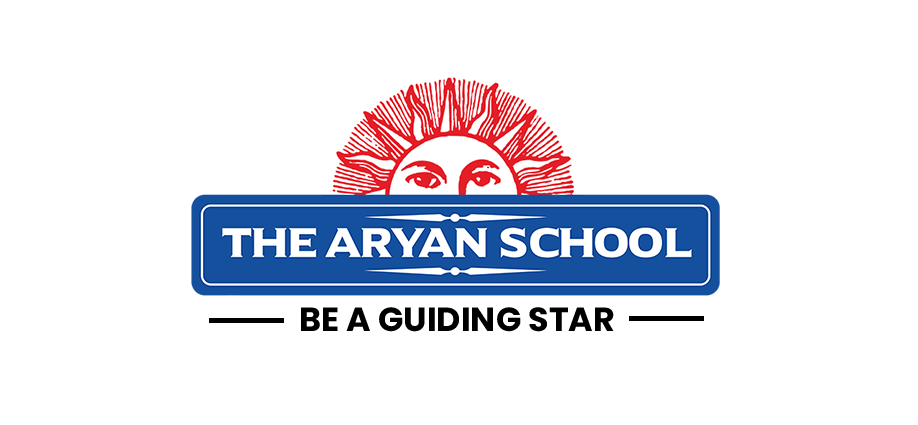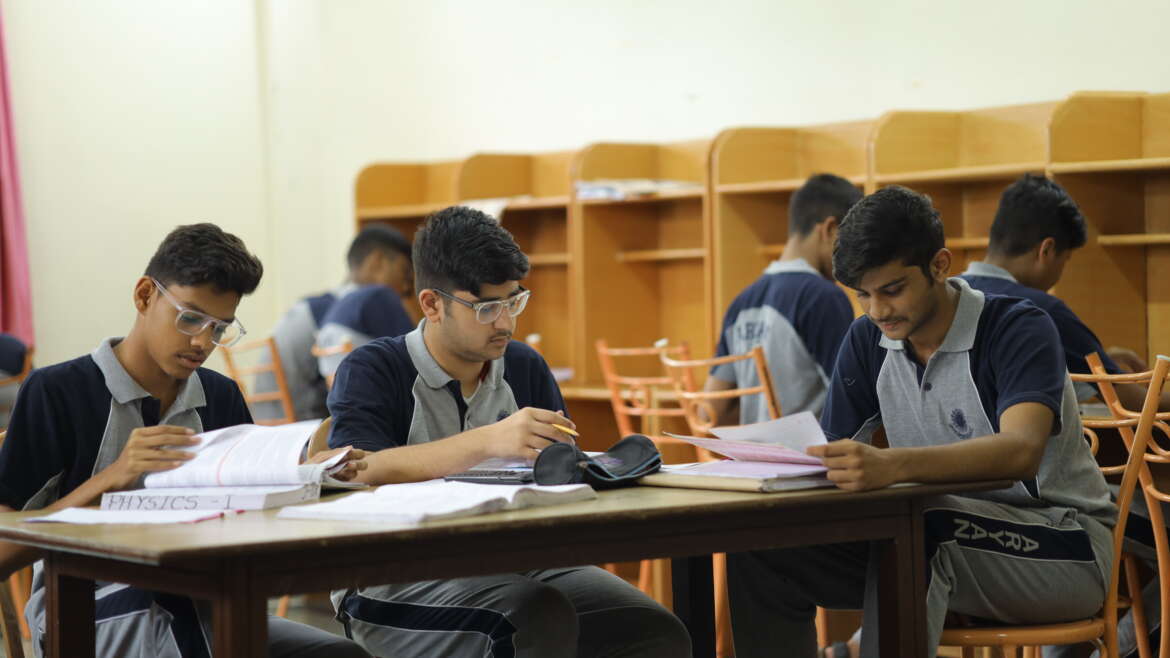Deciding Between CBSE and ICSE: A Parent’s Comprehensive Handbook
CBSE or ICSE guide – Choosing the right educational board for your child is a crucial decision that can shape their academic journey and future prospects. With various options available, it can often be overwhelming for parents to decide between CBSE (Central Board of Secondary Education) and ICSE (Indian Certificate of Secondary Education). To aid parents in making an informed choice, we present “Deciding Between CBSE and ICSE: A Parent’s Comprehensive Handbook.” This guide provides a detailed overview of both educational boards, highlighting their unique features, curriculum, assessment methods, and other factors that can influence your decision. Whether you’re a first-time parent or seeking a better understanding of these boards, this comprehensive handbook will equip you with the knowledge needed to make the best choice for your child’s education.
Introduction to ICSE (Indian Certificate of Secondary Education):
The Indian Certificate of Secondary Education (ICSE) is an educational board renowned for its comprehensive and holistic approach to education. Established with the aim of nurturing well-rounded individuals, ICSE places a strong emphasis on a broad range of subjects, including languages, humanities, sciences, and vocational education. The ICSE curriculum not only focuses on academic excellence but also aims to develop students’ critical thinking, problem-solving abilities, and creative skills. Through a well-structured syllabus and rigorous examination system, ICSE equips students with a deep understanding of subjects, fostering a love for learning and enabling them to excel academically. In this section of the handbook, we will delve into the unique features and advantages of ICSE, providing you with valuable insights to consider in your decision-making process.
Introduction to CBSE (Central Board of Secondary Education):
The Central Board of Secondary Education (CBSE) is one of the most widely recognized educational boards in India, known for its standardized curriculum and national-level examinations. CBSE is committed to providing a robust education system that prepares students for various competitive exams and higher education. With its emphasis on science and mathematics, CBSE offers a curriculum that focuses on building a strong foundation in these core subjects. CBSE also promotes the development of critical thinking, problem-solving skills, and application-based learning. In this section of the handbook, we will explore the distinctive features and benefits of CBSE, equipping you with valuable information to evaluate its suitability for your child’s educational needs.
Table of subjects offered by cbse and icse class
| Subject | CBSE (Central Board of Secondary Education) | ICSE (Indian Certificate of Secondary Education) |
|---|---|---|
| Core Subjects | English, Mathematics, Science, Social Science, Hindi | English, Mathematics, Science, History, Geography |
| Languages | English, Hindi, Regional Languages, Foreign Languages | English, Hindi, Regional Languages, Foreign Languages |
| Sciences | Physics, Chemistry, Biology, Computer Science | Physics, Chemistry, Biology, Computer Science |
| Mathematics | Mathematics | Mathematics |
| Social Sciences | History, Geography, Political Science, Economics | History, Geography, Political Science, Economics |
| Humanities | Sociology, Psychology, Political Science, Economics | Sociology, Psychology, Political Science, Economics |
| Commerce | Accountancy, Business Studies, Economics | Accountancy, Business Studies, Economics |
| Arts | Fine Arts, Music, Dance, Drama, Painting | Fine Arts, Music, Dance, Drama, Painting |
| Physical Education | Physical Education | Physical Education |
| Additional Electives | Information Technology, Home Science, Fashion Studies, Web Designing | Computer Applications, Environmental Science, Economics, Legal Studies |
| Vocational Subjects | Retail, Banking, Marketing, Tourism, Multimedia and Web Technology | Hospitality, Agriculture, Engineering, Healthcare, Media Studies |
Please note that the availability of specific subjects may vary from school to school within each board. Additionally, both CBSE and ICSE boards continuously update and revise their subject offerings, so it is important to refer to the official board guidelines and consult with respective schools for the most accurate and up-to-date information on subject choices.
Comprehensive Curriculum: A Key Consideration in the CBSE or ICSE Guide
When it comes to deciding between CBSE and ICSE boards, one crucial aspect that parents often evaluate is the comprehensiveness of the curriculum. Both CBSE (Central Board of Secondary Education) and ICSE (Indian Certificate of Secondary Education) boards offer a well-structured curriculum designed to provide students with a solid foundation for future academic pursuits.
CBSE follows a curriculum that aims to strike a balance between core subjects and a wide range of elective options. It focuses on providing students with a strong foundation in subjects such as mathematics, science, social studies, and languages. The CBSE curriculum is known for its standardized approach, ensuring uniformity across affiliated schools and enabling easy migration for students between different states or cities.
ICSE offers a more expansive and comprehensive curriculum. It emphasizes a holistic education by incorporating a broader range of subjects into its syllabus. In addition to the core subjects, ICSE includes subjects like arts, music, drama, physical education, and more. This allows students to explore their interests beyond traditional academic subjects and develop a well-rounded skill set.
The comprehensive curriculum of ICSE promotes a multidisciplinary approach to learning, fostering critical thinking, creativity, and problem-solving abilities in students. It encourages them to delve deeper into various subjects, facilitating a broader understanding of the world around them.
While CBSE focuses on core subjects, ICSE offers a broader spectrum of subjects, enabling students to explore diverse fields. Ultimately, the choice between CBSE and ICSE depends on the educational goals and preferences of parents and students. It is essential to consider the unique strengths and benefits of each curriculum to make an informed decision that aligns with the individual needs and aspirations of the child.
Emphasis on English Language Skills: A Crucial Factor in the CBSE or ICSE Guide
One significant factor that parents often take into account when deciding between CBSE (Central Board of Secondary Education) and ICSE (Indian Certificate of Secondary Education) boards is the emphasis on English language skills. Proficiency in the English language is considered essential in today’s globalized world, and parents seek an educational board that prioritizes the development of strong language skills.
CBSE places notable emphasis on English language skills through its curriculum. It focuses on enhancing students’ reading, writing, and communication abilities in English. CBSE schools incorporate various language-based activities, including debates, elocution competitions, and literary events, to promote linguistic proficiency. Additionally, the English language syllabus of CBSE aims to improve students’ grammar, vocabulary, and comprehension skills.
ICSE also recognizes the significance of English language skills and places significant emphasis on their development. ICSE schools provide a comprehensive English language curriculum that aims to enhance students’ linguistic competence. This includes in-depth study of literature, grammar, composition, and language usage. ICSE encourages students to develop effective communication skills through group discussions, presentations, and creative writing tasks.
Both CBSE and ICSE boards strive to nurture students’ English language skills, albeit with slight variations in their approaches. Parents should consider the specific methodologies and teaching practices employed by schools under each board to assess which aligns better with their child’s learning style and language development goals.
Ultimately, the emphasis on English language skills in CBSE and ICSE provides students with a solid foundation in the language, enabling them to excel in various academic and professional pursuits in the future.
Holistic Development: A Key Focus in the CBSE or ICSE Guide
Holistic development is a critical aspect that parents consider when choosing between CBSE (Central Board of Secondary Education) and ICSE (Indian Certificate of Secondary Education) boards. Both educational boards recognize the importance of nurturing students’ overall growth and provide opportunities for a well-rounded development.
CBSE is committed to holistic development and strives to create an environment that encourages students to excel not only in academics but also in co-curricular activities. CBSE schools offer a range of opportunities for students to engage in sports, arts, cultural events, and community service. These activities promote physical fitness, creativity, teamwork, leadership, and social responsibility.
ICSE places significant emphasis on holistic development and offers a comprehensive curriculum that goes beyond academics. ICSE schools integrate co-curricular activities into the curriculum, ensuring students’ participation in sports, performing arts, fine arts, and other extracurricular pursuits. This approach enables students to develop their talents, enhance their creativity, and gain a well-rounded education.
Both CBSE and ICSE boards recognize the significance of a balanced education that combines intellectual, physical, emotional, and social development. By providing a variety of opportunities for students to explore their interests and talents, these boards aim to shape individuals who are not just academically proficient but also well-rounded, confident, and socially aware.
When considering holistic development, parents should assess the specific offerings, facilities, and support provided by schools under each board. By evaluating the co-curricular programs, infrastructure, and the school’s approach to promoting extracurricular activities, parents can make an informed decision that aligns with their child’s interests and overall growth objectives.
In conclusion, both CBSE and ICSE boards prioritize holistic development, recognizing the importance of nurturing well-rounded individuals. Parents should evaluate the opportunities available in each board to ensure their child’s comprehensive growth and development in academic, physical, artistic, and social aspects.
Flexibility in Subject Choice: A Consideration in the CBSE or ICSE Guide
Flexibility in subject choice is an important aspect that parents often take into account when deciding between CBSE (Central Board of Secondary Education) and ICSE (Indian Certificate of Secondary Education) boards. The ability to choose subjects based on a student’s interests, strengths, and future aspirations can play a crucial role in their academic journey.
CBSE offers a diverse range of subjects, including core subjects like mathematics, science, social studies, and languages. Additionally, CBSE provides various elective subjects that students can choose from based on their preferences and career goals. This flexibility enables students to tailor their curriculum and explore areas of personal interest while maintaining a strong foundation in core subjects.
ICSE provides flexibility in subject choice, allowing students to select subjects based on their aptitude and career aspirations. The ICSE curriculum offers a wide array of subjects, including humanities, commerce, and science streams. This flexibility empowers students to pursue their areas of interest and specialize in subjects that align with their future academic or professional paths.
The flexibility in subject choice provided by both CBSE and ICSE boards allows students to customize their learning experience and adapt their curriculum to their individual strengths and interests. It enables them to explore diverse fields and develop a deeper understanding of their chosen subjects.
Parents should consider their child’s academic inclinations, career aspirations, and long-term goals when evaluating the flexibility of subject choices offered by each board. By understanding the options available and considering their child’s unique needs, parents can make an informed decision that aligns with their child’s academic and career aspirations.
Conclusion
In conclusion, both CBSE and ICSE boards offer flexibility in subject choice, allowing students to personalize their educational journey. The availability of a diverse range of subjects empowers students to explore their interests, pursue their passions, and lay the foundation for future academic and career success.
Choosing the right educational board for your child between CBSE and ICSE is a crucial decision that can greatly impact their academic journey and future prospects. This comprehensive handbook, “Deciding Between CBSE and ICSE: A Parent’s Comprehensive Guide,” has provided an in-depth overview of both boards, highlighting their unique features, curriculum, assessment methods, and other factors to consider.
The handbook has shed light on the comprehensive curriculum offered by both CBSE and ICSE, emphasizing the strengths and benefits of each. It has discussed the emphasis placed on English language skills, recognizing their importance in today’s globalized world. Furthermore, the handbook has emphasized the boards’ commitment to holistic development, ensuring a well-rounded education that nurtures students’ intellectual, physical, emotional, and social growth. Lastly, the flexibility in subject choice offered by both boards has been explored, enabling students to tailor their education based on their interests, strengths, and future aspirations.
Ultimately, the choice between CBSE and ICSE depends on various factors such as the educational goals, preferences, and aspirations of your child. By considering the comprehensive information provided in this handbook, parents can make an informed decision that aligns with their child’s unique needs and sets them on a path towards academic success and holistic development.
Remember to consult with schools, gather additional information, and seek guidance from educators to ensure that the chosen educational board provides the best fit for your child’s individual learning style and goals. With careful consideration and the support of a nurturing educational environment, your child can thrive and unlock their full potential.
Why Choose Us?
The Aryan School: A Premier Choice for Education in Dehradun
Nestled amidst the picturesque hills of Dehradun, The Aryan School stands as a beacon of educational excellence. Renowned as one of the best boarding schools in Dehradun, and a leading day boarding school as well, The Aryan School offers a holistic and enriching learning experience for students. With its commitment to academic rigor, extracurricular activities, and overall development, it has earned a well-deserved reputation as the best school in Dehradun.
Academic Excellence:
At The Aryan School, academic excellence is at the forefront of their educational philosophy. The school follows a well-structured curriculum that adheres to the highest educational standards. Under the guidance of experienced and dedicated faculty, students are encouraged to strive for academic excellence while developing a deep understanding of various subjects. The school offers both CBSE and ICSE boards, providing parents and students the flexibility to choose the curriculum that best suits their educational goals.
Holistic Development:
Recognizing the importance of holistic development, The Aryan School offers a wide range of extracurricular activities that nurture students’ talents and interests. From sports and performing arts to community service and leadership programs, students have ample opportunities to explore their potential beyond the classroom. The school’s state-of-the-art infrastructure and facilities provide a conducive environment for students to excel in their chosen areas.
Focus on Character Building:
The Aryan School believes in instilling strong values and character traits in its students. Through various value-based programs, ethical teachings, and mentorship, the school aims to shape individuals who are not only academically proficient but also morally upright and socially responsible. The emphasis on character building helps students become compassionate, empathetic, and responsible global citizens.
Safe and Nurturing Environment:
The Aryan School is committed to providing a safe and nurturing environment for its students. The school’s campus is equipped with modern security systems and supervised by trained staff to ensure the safety and well-being of every student. The caring and supportive atmosphere fosters a sense of belonging and encourages students to thrive academically and personally.
Global Exposure:
In today’s interconnected world, global exposure is crucial for students to broaden their horizons and develop a global perspective. The Aryan School offers various international exchange programs, collaborations with renowned institutions, and participation in global conferences and competitions. These opportunities enable students to interact with their peers from different cultures, enhancing their understanding of diversity and preparing them to succeed in a globalized society.
Parental Involvement:
The Aryan School recognizes the importance of a strong partnership between parents and the school. The school actively involves parents in the educational journey of their children through regular communication, parent-teacher meetings, and workshops. This collaborative approach ensures that parents are well-informed about their child’s progress, enabling them to actively support their child’s academic and personal growth.
FAQ’s
Q: How to choose between CBSE and ICSE?
A: When choosing between CBSE and ICSE, consider factors such as your child’s learning style, career goals, and preferences. Assess the curriculum, teaching methods, and assessment systems of both boards. Additionally, consider consulting with educators, researching school options, and seeking advice from parents who have experience with each board.
Q: What is the main difference between CBSE and ICSE?
A: The main difference between CBSE and ICSE lies in their curriculum and assessment methods. CBSE follows a more standardized approach, with a focus on core subjects and national-level examinations. ICSE, on the other hand, offers a more comprehensive curriculum, including a broader range of subjects and an emphasis on holistic development. The assessment methods also differ, with CBSE using a more structured and objective evaluation system, while ICSE employs a more detailed and descriptive approach.
Q: Which education is best for the future, CBSE or ICSE?
A: Both CBSE and ICSE education provide a strong foundation for future academic and career pursuits. The choice between CBSE and ICSE depends on your child’s interests, strengths, and aspirations. Consider their learning style, preferred subjects, and future goals. Both boards have produced successful individuals, and it is crucial to select the board that aligns best with your child’s individual needs and future aspirations.
Q: Which board has more value, CBSE or ICSE?
A: The value of a board, whether CBSE or ICSE, is subjective and depends on various factors. Both boards are recognized and widely accepted in India. The value of a board is determined by factors such as the quality of education provided by schools, the overall development of students, and their performance in competitive exams. It is important to choose a reputable school under either board that prioritizes academic excellence, holistic development, and equips students with skills for their future endeavors.
Q: What are the advantages of choosing CBSE over ICSE?
A: Some advantages of choosing CBSE include its standardized curriculum, easy migration between schools and states, focus on core subjects, and alignment with competitive exams such as JEE and NEET.
Q: What are the advantages of choosing ICSE over CBSE?
A: Some advantages of choosing ICSE include its comprehensive curriculum, emphasis on holistic development, inclusion of a wide range of subjects, focus on English language skills, and fostering critical thinking and creativity.
Q: How do CBSE and ICSE differ in their examination patterns?
A: CBSE follows a more structured and objective examination pattern, with a focus on multiple-choice questions and marking schemes. ICSE, on the other hand, employs a more descriptive examination pattern, where students are expected to provide detailed answers and demonstrate in-depth understanding.
Q: Which board is better for students interested in competitive exams?
A: Both CBSE and ICSE provide a suitable foundation for competitive exams. However, CBSE is often preferred by students aspiring to pursue engineering and medical fields, as it aligns with exams like JEE and NEET.
Q: Are there any notable differences in the teaching methodologies of CBSE and ICSE?
A: While both CBSE and ICSE boards encourage interactive teaching methodologies, CBSE often follows a more structured and textbook-based approach, whereas ICSE focuses on experiential learning, practical application, and encourages creative thinking and problem-solving skills.



